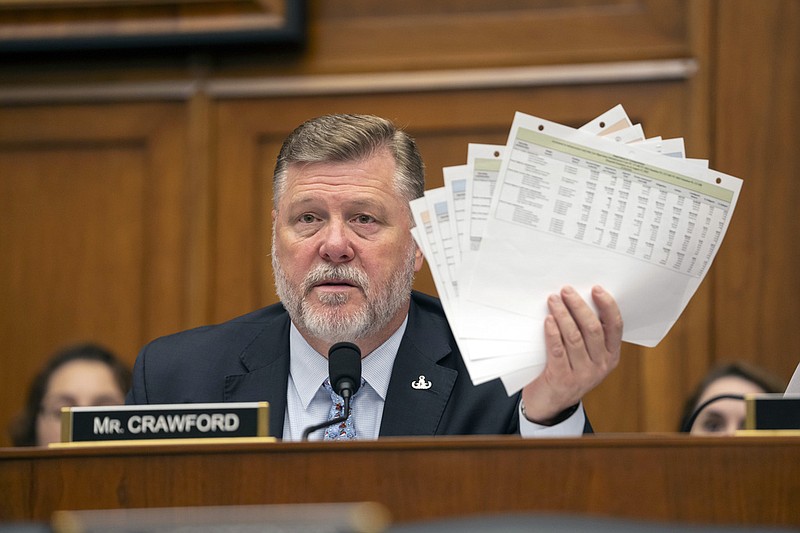WASHINGTON -- U.S. Rep. Rick Crawford, R-Ark., is among the plaintiffs in a lawsuit contending that federal lawmakers' wages have been "unconstitutionally suppressed" because Congress has opted out of multiple salary changes.
Crawford, of Jonesboro, is the only active member on the legal complaint, which the plaintiffs' counsel filed March 7 in the U.S. Court of Federal Claims. Other complainants include former Reps. Rodney Davis, R-Ill.; Thomas Davis, R-Va.; and Ed Perlmutter, D-Colo.
Ken Cuccinelli, who served as Virginia's attorney general and a Homeland Security official within President Donald Trump's administration, represents the lawmakers.
Politico first reported on the class-action lawsuit March 11.
The case focuses on the 27th Amendment to the U.S. Constitution. While James Madison proposed the language in June 1789, the amendment was not ratified until May 1992. It states that any salary changes for members of Congress cannot take effect until after the next election of the House of Representatives.
The baseline salary for senators and House of Representatives members is $174,000, an amount last changed in 2009.
The plaintiffs argue that Congress and the executive branch have routinely "unconstitutionally suppressed" cost-of-living adjustments in the form of salary changes. The complaint notes 21 occasions since May 1992 when Congress and the president in power agreed against enacting changes without an intervening election.
"Each Plaintiff, and all those similarly situated, lost -- and current Members continue to lose -- significant salary due to the foregoing unconstitutional underpayments," the complaint states.
Former members qualified for the federal retirement program, according to the plaintiffs, have "had their retirement unconstitutionally reduced due to the unconstitutional suppression of congressional pay, as their retirement pensions are set based on the average pay of the highest three years of salary of their entire period of federal service."
Crawford's office did not return a request from the Arkansas Democrat-Gazette for comment regarding the lawsuit.
Language increasing lawmakers' salaries was not part of the $1.2 trillion spending package that Congress considered Friday. The Senate appropriations bill addressing legislative branch spending blocked a cost-of-living adjustment for the current fiscal year.
According to the nonpartisan Congressional Research Service, the adjustment would have increased salaries by 4.6%, or $8,000.

